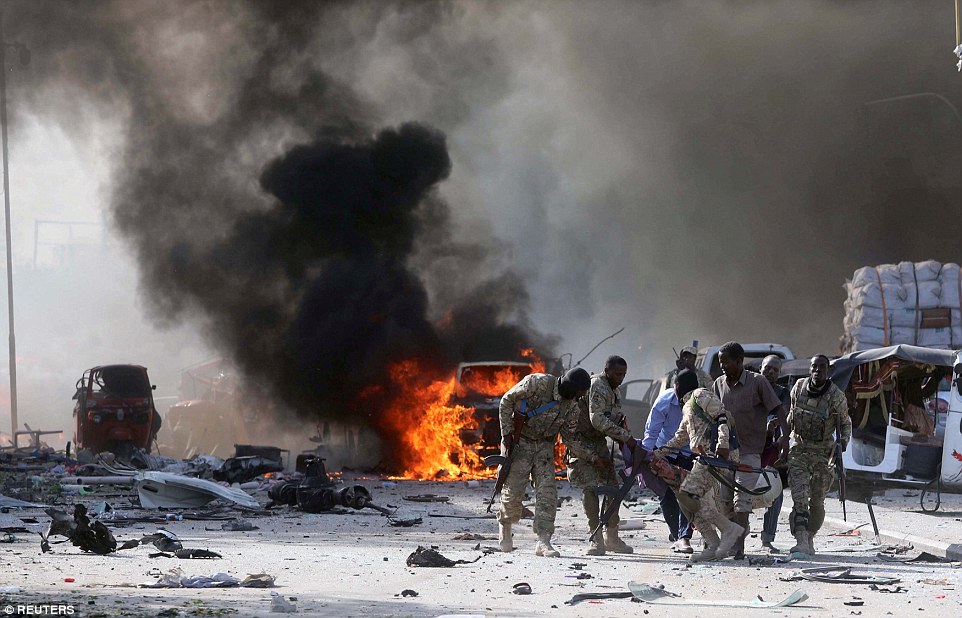IEDs account for highest civilian deaths in Somalia-UN report


More than half of the civilian casualties between January 2016 and October this year in Somalia were as a result of Improvised Explosive Devices (IEDs) attacks with the October 14 truck bombing accounting for the highest casualty figures in a day, the UN has said.
Out of 4,585 casualties documented in the report, 54% of the casualties (748 killed and 1,550 injured) are attributed to various types of IEDs attacks majority of which were conducted in Mogadishu.
“Among the civilian casualties attributed to Al Shabaab, 64 per cent were caused by VBIEDs and 15 per cent by IED attacks,” the report notes.
The findings add to concerns raised by UN Monitoring report last month which observed Al-Shabaab now had the capability to make bombs from homemade materials as well as buying them or harvesting them from munitions.
Almost half of civilian casualties were attributed to complex attacks and the use of Vehicle borne improvised explosive devices (VBIEDS) accounting for 49% while suicide attacks using VBIEDs and Person borne IEDs (PBIED) made up 25% Other types of IEDs were responsible for 26% of civilian casualties.
Lack of intelligence sharing and coordinated intelligence gathering could further confound attempts at dealing with the IED menace facing the country. Sources quoted by Reuters in October point to ‘competing programs by different donor nations the lack of a centralized database are hurting efforts to analyze intelligence related to improvised explosive device’.
Former intelligence chief Abdullahi Sanbalooshe in an Op-Ed October accused international intelligence agencies of hoarding intelligence gathered from IED explosion scenes denying local security forces access to vital information.
“The evidence gathered from bombing scenes is handled and removed by foreign “mentors” who treat intelligence as a commodity rather than as a shared asset in our battle against a common enemy,” Sanbalooshe said.